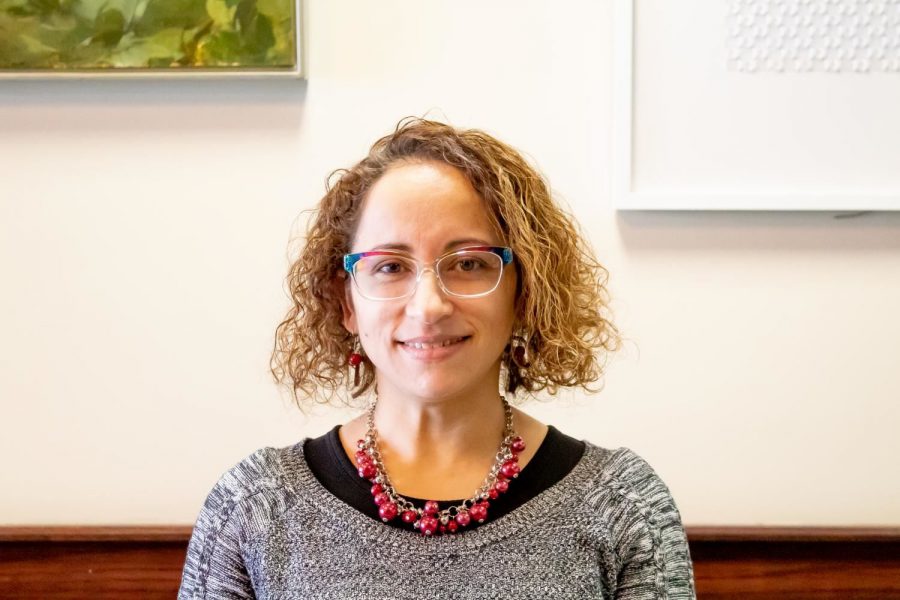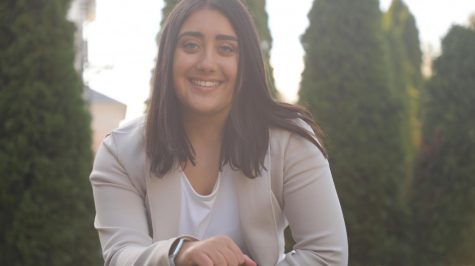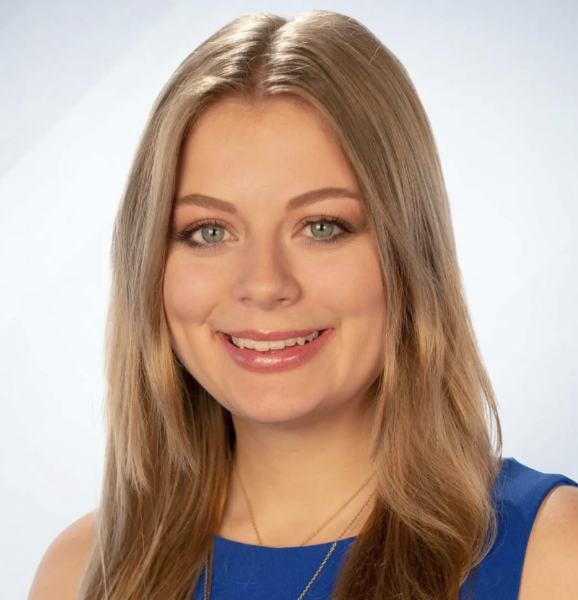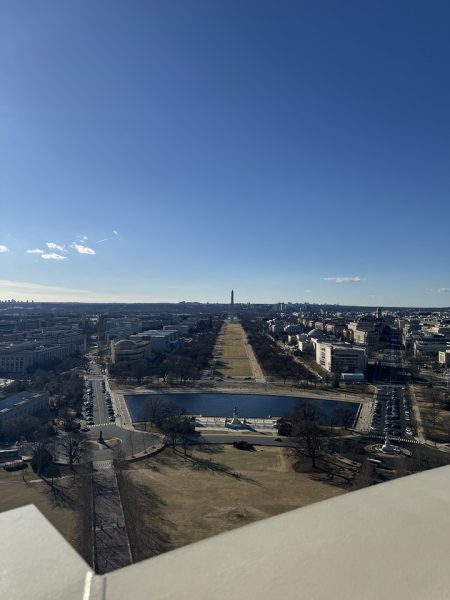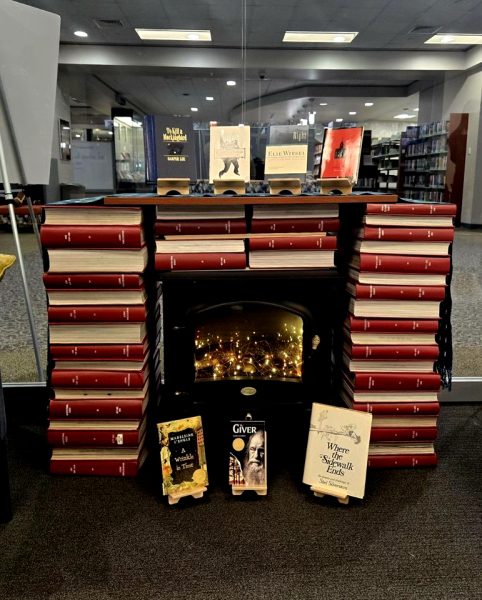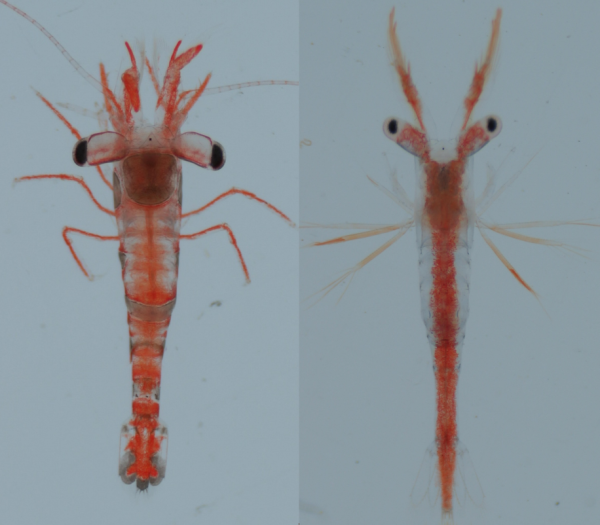Leading faces of the Intercultural Center: Professional staff works to strengthen diversity and inclusion efforts on campus
ZOILA QUEZADA, Director, Institutional Diversity, Equity and Inclusion
Today marks one month since Zoila Quezada officially stepped into her role as the new director of institutional diversity, equity and inclusion at RWU.
“The model here, because of the size of the university, lends itself to a lot more creativity, because we’re dealing with a small student body. Although there still continues to be a lot of work, it can be more creative in terms of what you can do here,” she said.
When asked about any original goals that she had for the Intercultural Center as a whole, Quezada mentioned that she has many.
“First for me would be rebuilding either what the Intercultural Center was or should be,” she said. “It should be a place where students are feeling like they can come in at anytime and feel at home, that they can have access to the staff here on a daily basis, and that they are being supported and succeeding.”
It is Quezada’s primary goal to support the three assistant directors in the IC, and she said that she makes an effort to attend most of their events in order to show that she is a support system for them. She supports the events of different associated clubs and orgs as well, and is an advisor for Barbershop, a student club for men of color on campus.
Quezada is working on planning for the future and analyzing what the specific needs are for students. She is helping with the Diversity and Inclusion Plan for RWU, working closely with professionals like Chief Diversity Officer Dr. Ame Lambert. This plan is still only in draft form, but it contains multiple guidelines for increasing diversity across the university.
Looking at minoritized students, Quezada also wants to reach out to those who are very minoritized, citing a key priority to include Native American and/or indigenous students as part of the Center — showing them that they can find a home there.
She is also working with her staff on trying to establish a better presence from the IC at accepted student days as she moves to create a stronger brand and identity for the Center.
For students who do not know about the IC or want to get involved, Quezada said that students can call or email the Center, check out its different events or simply come in to find out more.
“I think people don’t know the value of the IC until they’re in here, but we have to get people here,” she said. “Having them come to one of our events that we’re doing outside of the IC would be good too, so they can get to know us in a different place, if they’re not yet at a point where they feel like they can come into the IC.”
It might seem difficult to get anything done in just 31 days. But since Quezada has taken on her role, she has been and continues to work on implementing diverse support systems for students and break down exclusive barriers on campus.
CASSIDY HAMMOND, Assistant Director, International Student and Scholar Initiatives
Having an alum continue their work on campus and help future generations of students is definitely a benefit to students who are entering in. Cassidy Hammond, current assistant director of international student and scholar initiatives, graduated from RWU in 2015. She worked in the Intercultural Center as a graduate assistant until she took on the assistant director position in 2016.
Hammond works directly with international students, implementing immigration and cultural adjustment programming, among anything else related to this group of students. She also works on programming to promote international awareness on campus.
There are a few university programs that Hammond is at the helm of. The Global Scholars Program — which is new as of this year — is a first-year experience program specifically designed to help international students with academic and cultural adjustment during their first semesters on campus. It is co-sponsored by the university’s Counseling Center. Hammond also described the peer-to-peer International Ambassadors Program, which she has been working on over the last three years.
Hammond said these programs were created based on feedback from students about a lack of these programs. They were really created based on the students’ needs.
Hammond said that her favorite part of the job involves the student interaction aspect of her work.
“Working with the international ambassadors. It is a nice, small group of students that I really get to know and to share ideas with,” she said.
Hammond’s long-term goals in her position involve expanding on the programs that are already in place and offering new programs to support international student success on campus.
GABBY PORCARO, Assistant Director, Queer and Trans Student Initiatives
Becoming the first-ever LGBTQ+ coordinator at a university is not an opportunity that is granted to everyone. When Gabby Porcaro took on this role and the title of Assistant Director for Queer and Trans Student Initiatives at RWU, she intended to spark positive change on campus in regards to creating resources for the queer and trans community.
Porcaro played a role in the opening of the Gender and Sexuality Center in the fall of 2017. She led a committee composed of students, faculty and staff to develop a new name for the center. These efforts led to its new moniker: The Queer and Trans Resources and Advocacy Center, or the Q TRAC, which is located in Maple Hall.
One of Porcaro’s main focuses revolved around launching the Safe Zone program at the university, which was created in an effort to increase awareness and acceptance of students, faculty and staff who are members of the queer and trans community. The program is a national model that RWU did not have in place before. Porcaro said that this was not acceptable and that the university needed to address that it did not have one.
“There are all of these ways that we exclude queer and trans people from everyday conversation and everyday practices,” she said. “If you really dig deep into the learning from the Safe Zone program, you’ll be more conscious and more able to identify the places where your language is gendered or your language is heteronormative where it shouldn’t be.”
Other initiatives that Porcaro is involved with include Lavender Graduation, a ceremony to celebrate the successes of queer and trans students, and the Kinship Collective, a mentor program that matches students with faculty or staff who identify as queer or trans people.
Porcaro has accomplished a great deal in her position thus far, but there is still more work to be done. She discussed how important it is for students to understand that something as simple as their language can be gendered and how progress still needs to be made in fostering a more inclusive environment in speech.
KEYLA EUSEBIO, Assistant Director, Multicultural Student Initiatives
Entering the role of assistant director of multicultural student initiatives encompasses many different student populations and identities. Keyla Eusebio, newly hired to this position as of just last month, has already brought multiple ideas and strategies to the table regarding how to increase multicultural awareness on campus.
RWU was the first university she had ever visited as a child. Taking this position was something she was very passionate about.
“I really just wanted to come back home and work in an environment that I was really familiar with. In a sense, give back to the community around me,” she said.
One of Eusebio’s goals was creating a program that specifically targets first-generation college students. She previously worked with the first-year experience office at Salem State University, and most of the students whom she saw were students of color. She knew that she wanted to create an initiative that focused on this population of students, and said that she is getting this experience here.
Eusebio will be overseeing the university’s SOAR program, a new mentorship program that was founded and established by Chief Diversity Officer Dr. Ame Lambert. The program helps first-generation college students and/or students of color to get through the high school-to-college transition, providing them with resources and tools to effectively navigate campus.
Primarily a faculty-student program, eligible students are first asked questions about their personality types and majors so they can be paired with a faculty member who is in their major department; if students are undecided, the personality-driven questions will help determine who would complement them as mentors. This way, students can connect with their mentors right away, and are able to build a strong relationship with the each other from the start.
“Right now my priority is to really start building capacity for the program and recruiting more students to participate, because we’re seeing that a lot of first-generation students of color are struggling to make connections on campus or feel as though they belong,” she said. “I feel like the SOAR program can do that once we do build it up to the program that it could be.”
Eusebio is one of the co-advisors for Multicultural Student Union, helping students brainstorm ideas and plan events that allow students, faculty and staff to think critically about racial issues on campus. MSU and the Black Living Learning Community (LLC) co-sponsored a Celebration of Dr. Martin Luther King Jr. on Feb. 6 with a dramatic reading of the “Letter from Birmingham Jail.” Eusebio is passionate about her involvement with both of these groups; given that the Black LLC is a newer program — now in its second semester on campus — she is working to draw more attention to it.
“I’m working with Ame to recruit more students to participate in the Black LLC because it is a high impact practice which has been showing amazing results. The average GPA of a Black LLC student is about 3.2 and it’s even higher once you exclude outliers, closer to 3.4 or 3.5.”
In the future, Eusebio is focused on growing these programs into strong initiatives on campus. She wants to remind RWU community members about the power of social justice, and clarify that this is a struggle that never goes away for students of color.
“The goal is to educate students, faculty and staff about social justice issues and how they can be allies,” she said.
STEPHEN LALIBERTE, Administrative Assistant, Intercultural Center and Q Trac
Another alum of the university, Stephen Laliberte was a member of the Class of 2006. Now that he has taken on the position of administrative assistant for the Intercultural Center and Q TRAC, he is determined to guide students in a professional setting and help them to realize the implications of the diverse work they are doing.
He had prior work experience within the higher education realm, but has recently come from a retail background, which he wanted a change from. On wanting to return to RWU for this position, he said that attending school here was a significant part of his educational development.
“It made me who I was. I felt like, what better way to pay that back to the students that are here now and that need support?” he said.
He did not always know that he wanted to do work with diversity and inclusion efforts in his future, but he says that, as a queer man, this work plays a role in his personal life and he understands the importance of it.
“All the students I’ve met are really great. There’s a lot of passion on the campus. It’s great to see a lot more student involvement and empowerment, be it from their interests, majors or the groups now that didn’t exist back then,” Laliberte said.
Being the supervisor for student workers in the IC, Q TRAC, and some other areas like the student club for men of color on campus, the Barbershop, he coordinates the schedules, paychecks and other various tasks for around 40 student workers. Laliberte is also working on his own projects, such as the Intercultural Center senior recognition ceremony, and coordinating having better representation from the Center on the university’s four accepted student days.
Laliberte mentions that working with the students is truly his favorite part of the job, as he gets to listen to them and act as a support system if they need one.
“Students are our customers, they’re what we’re here for,” he said. “I want to help support them in any way that they need. Because we all need people on our team, no matter what.”
Laliberte says that he hopes in the future to help students leverage the work that they do within these departments by giving them not only academic experiences to put on their resumes, but valuable real-world experiences as well.

